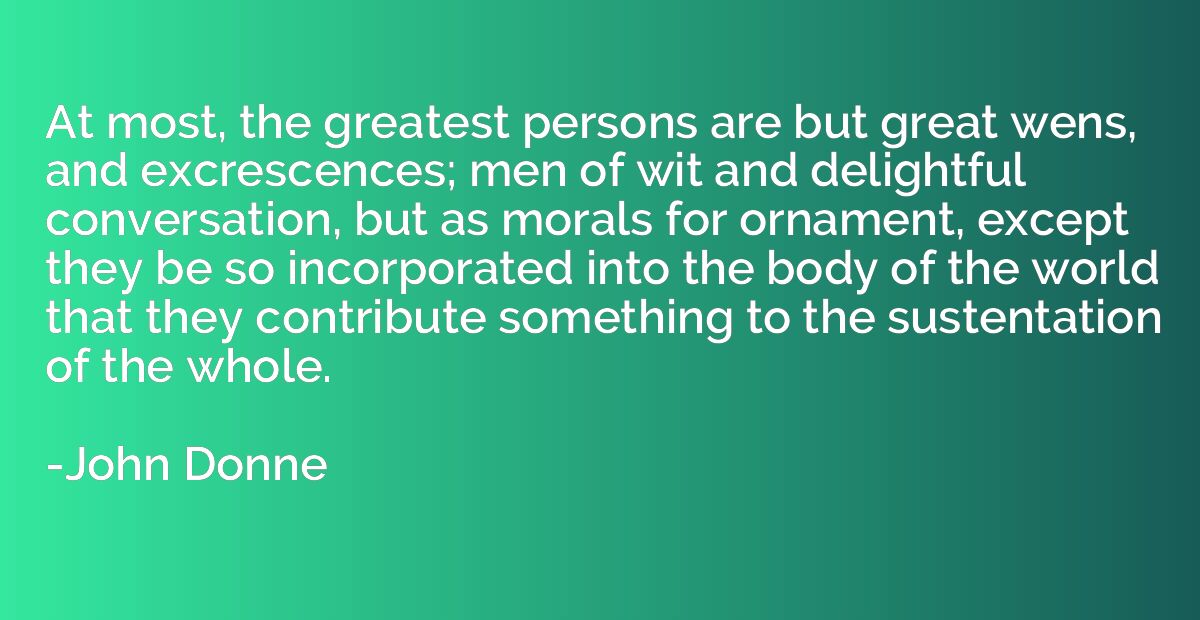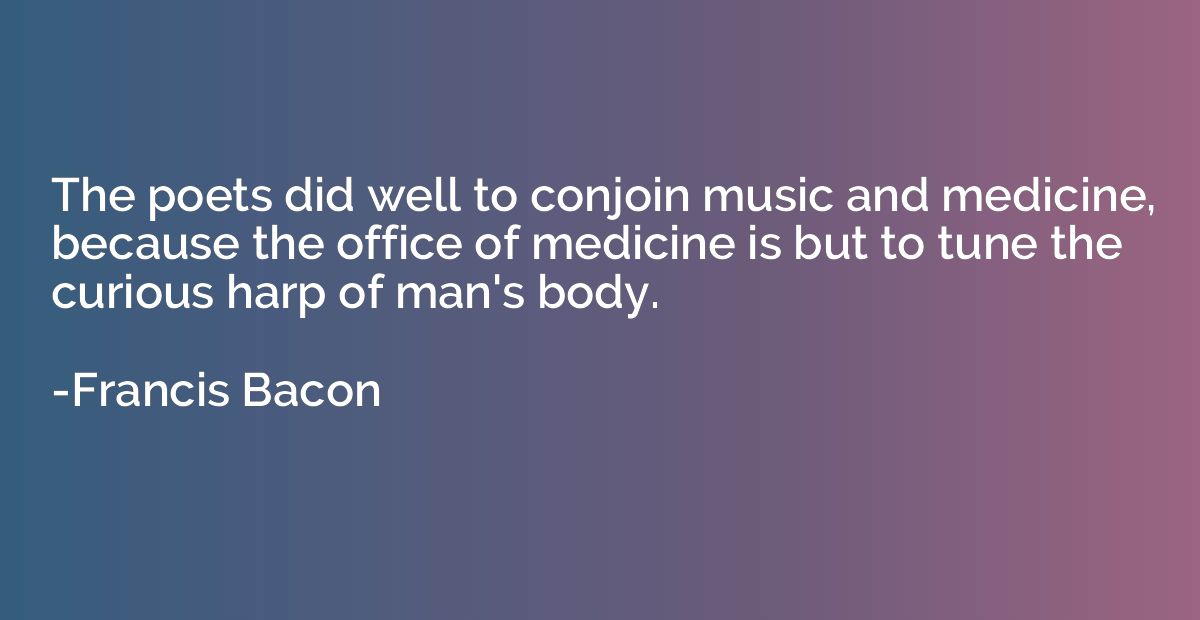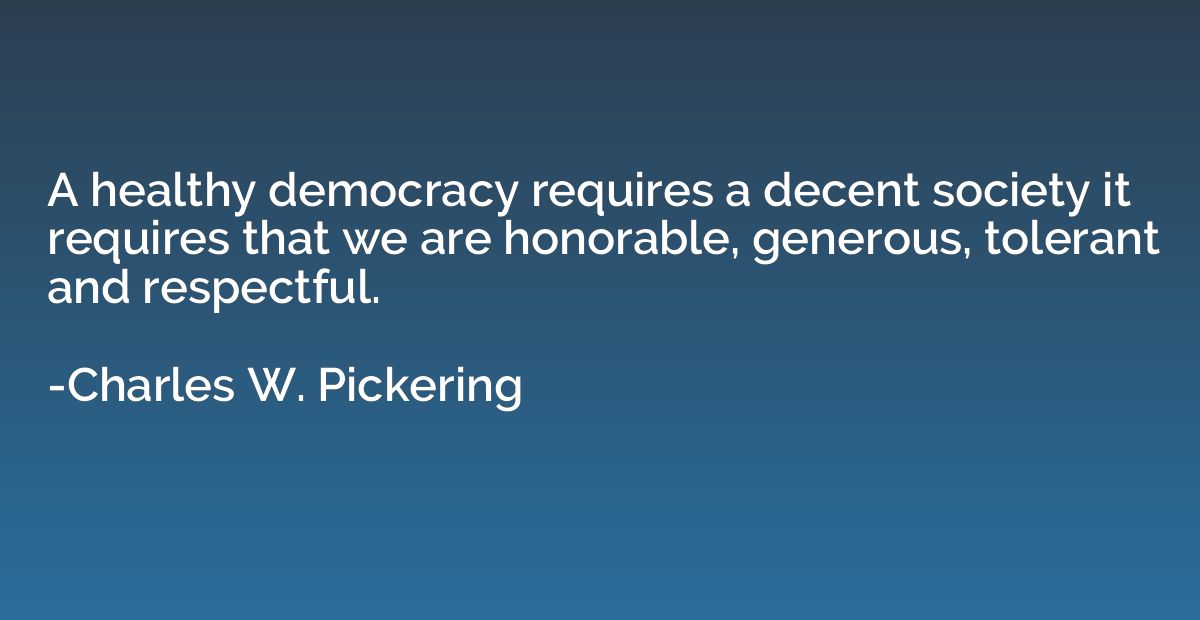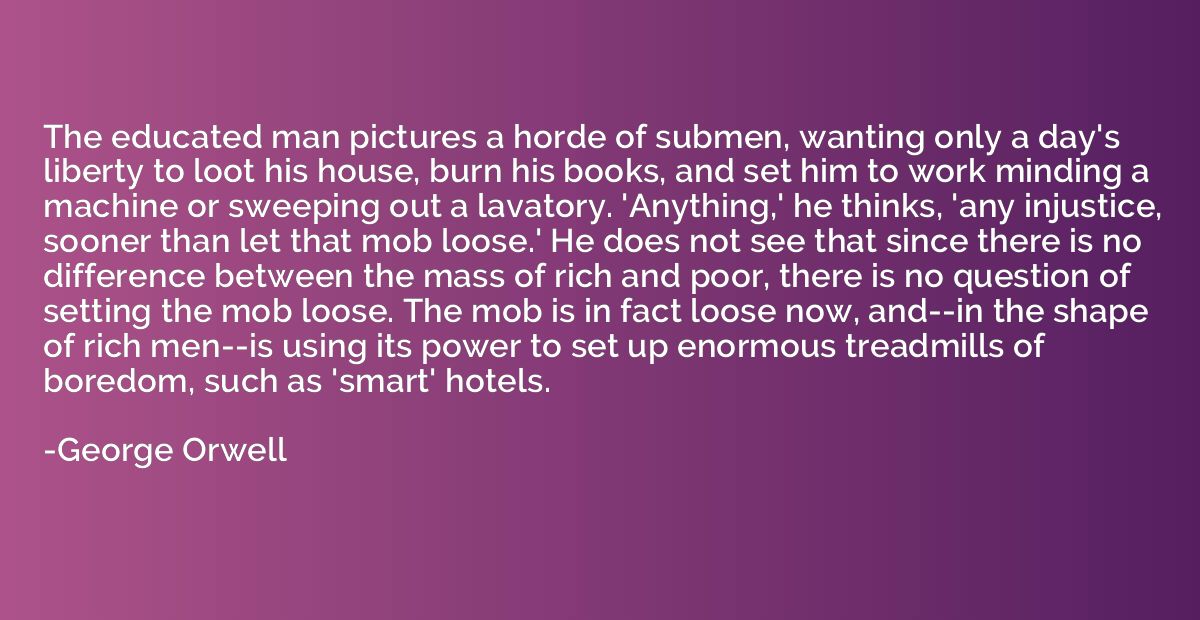Quote by John Donne
At most, the greatest persons are but great wens, and excrescences; men of wit and delightful conversation, but as morals for ornament, except they be so incorporated into the body of the world that they contribute something to the sustentation of the whole.

Summary
This quote suggests that although highly esteemed individuals may possess great talent, intelligence, and charm, they can be likened to mere growths on the surface unless they actively contribute to the well-being and functioning of society. Being morally upright or possessing good character doesn't hold much value unless individuals actively use their qualities to make a positive impact on the greater world. In essence, this quote promotes the idea that true greatness lies in offering something more substantial than just personal qualities; it lies in actively contributing to the betterment of society.
Topics
Greatness & Great Things
By John Donne














